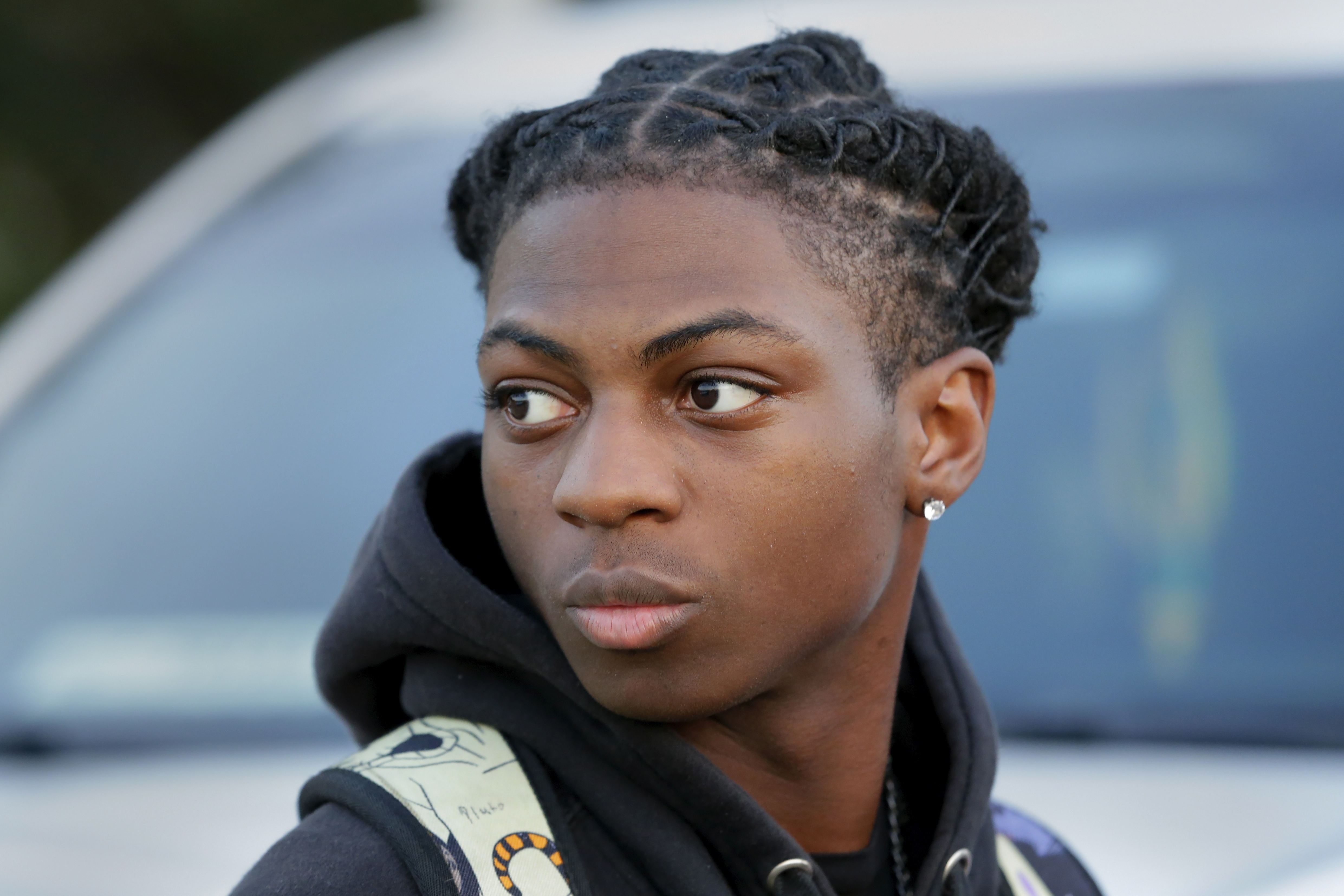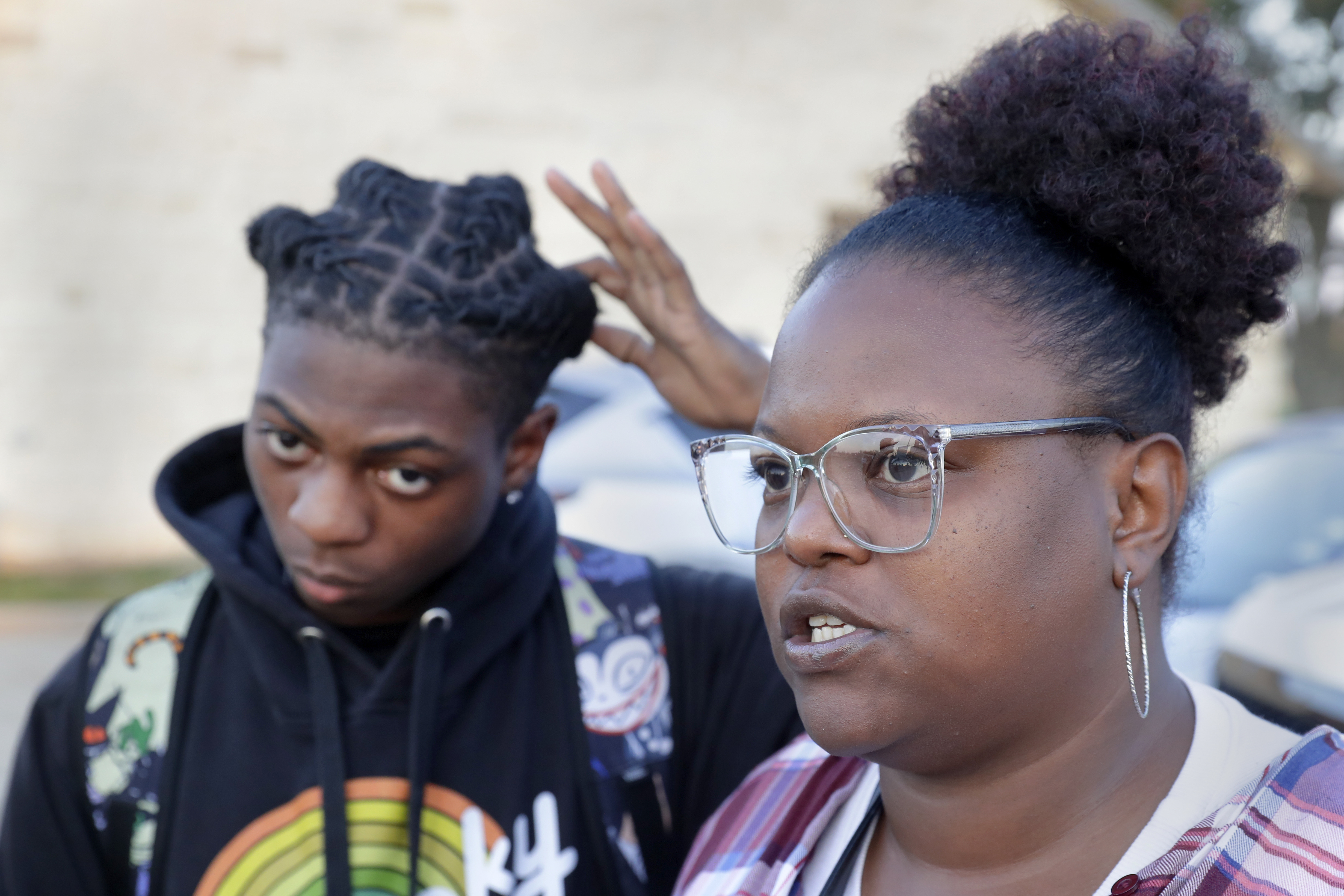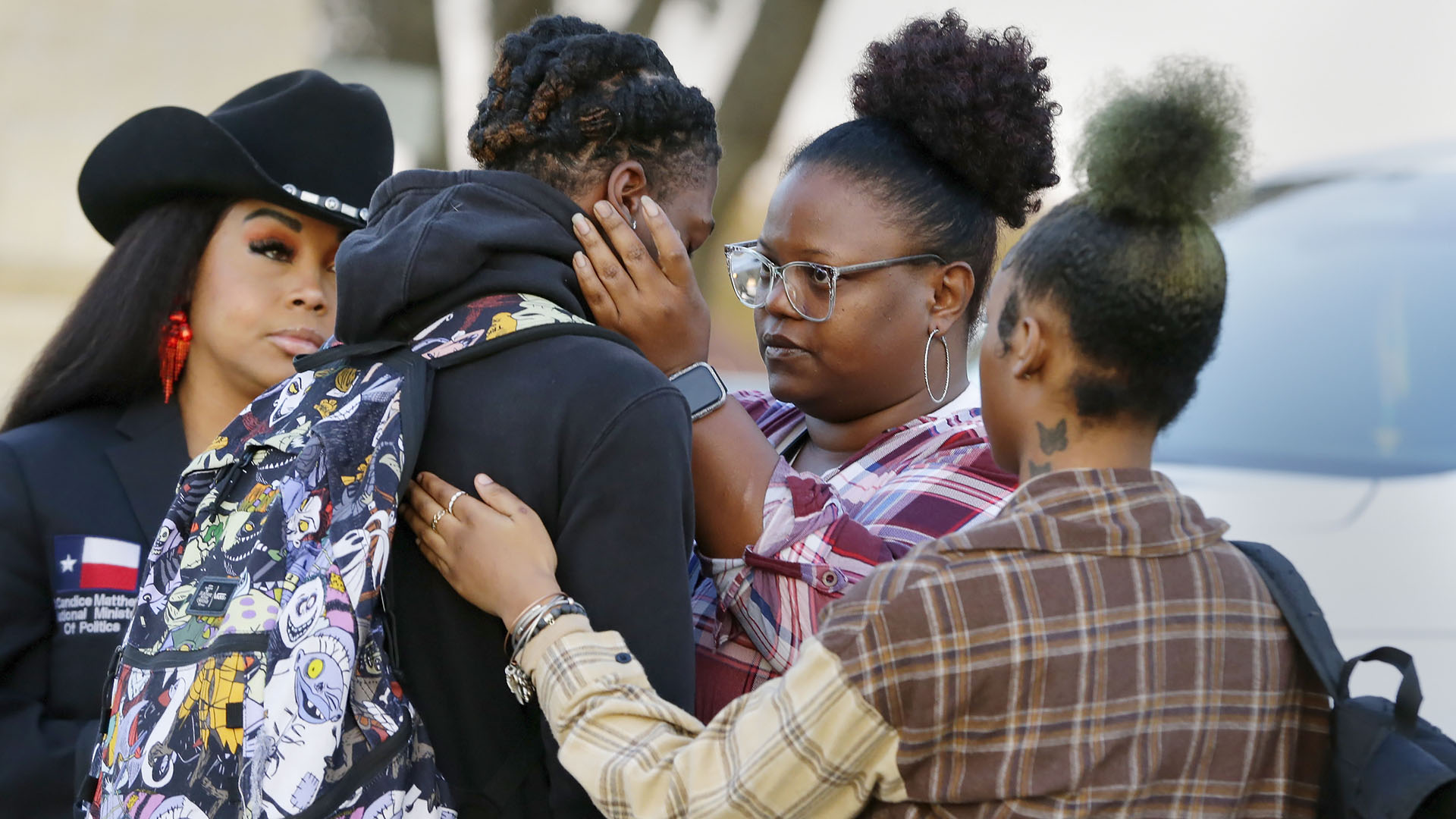
A Black high school student in Texas who was punished for nearly all of his junior year over his hairstyle has left his school district rather than spend another year of in-school suspension, according to his attorney.
But Darryl George, 18, would like to return to his Houston-area high school in the Barbers Hill school district for his senior year and has asked a federal judge to issue a temporary restraining order that would prevent district officials from further punishing him for not cutting his hair. It would allow him to return to school while a federal lawsuit he filed proceeds.
George’s request comes after U.S. District Judge Jeffrey Brown in August dismissed most of the claims the student and his mother had filed in the federal lawsuit alleging school district officials committed racial and gender discrimination when they punished him.
The judge only let the gender discrimination claim stand and questioned whether the school district’s hair length rule causes more harm than good.
Get top local stories in DFW delivered to you every morning. >Sign up for NBC DFW's News Headlines newsletter.
“Judge Brown please help us so that I can attend school like a normal teenage student during the pendency of this litigation,” George said in an affidavit filed last month.
Brown has scheduled an Oct. 3 court hearing in Galveston on George’s request.
In court documents filed last week, attorneys for the school district said the judge does not have jurisdiction to issue the restraining order because George is no longer a student in the district.
“And George’s withdrawal from the district does not deprive him of standing to seek past damages, although the district maintains that George has not suffered a constitutional injury and is not entitled to recover damages,” attorneys for the school district said.
The district defends its dress code, which says its policies for students are meant to “teach grooming and hygiene, instill discipline, prevent disruption, avoid safety hazards and teach respect for authority.”
In court documents filed last week, Allie Booker, one of George’s attorneys, said the student was “forced to unenroll” from Barbers Hill High School in Mont Belvieu and transfer to another high school in a different Houston area district because Barbers Hill officials placed him on in-school suspension on the first and second day of the new school year, which began last month.
This “caused him significant emotional distress, ultimately leading to a nervous breakdown. As a result, we had no choice but to remove him from the school environment,” Booker said.
George’s departure “was not a matter of choice but of survival” but he wishes to return, as his mother moved to the area because of the quality of the district’s schools, Booker said.
George was kept out of his regular high school classes for most of the 2023-24 school year, when he was a junior, because the school district said his hair length violated its dress code. George was forced to either serve in-school suspension or spend time at an off-site disciplinary program.
The district has argued that George’s long hair, which he wears to school in tied and twisted locs on top of his head, violates its policy because if let down, it would fall below his shirt collar, eyebrows or earlobes. The district has said other students with locs comply with the length policy.
George’s federal lawsuit also alleged that his punishment violates the CROWN Act, a recent state law prohibiting race-based discrimination of hair. The CROWN Act, which was being discussed before the dispute over George’s hair and which took effect in September 2023, bars employers and schools from penalizing people because of hair texture or protective hairstyles including Afros, braids, locs, twists or Bantu knots.
In February, a state judge ruled in a lawsuit filed by the school district that its punishment does not violate the CROWN Act.
Barbers Hill’s hair policy was also challenged in a May 2020 federal lawsuit filed by two other students. Both withdrew from the high school, but one returned after a federal judge granted a temporary injunction, saying there was “a substantial likelihood” that his rights to free speech and to be free from racial discrimination would be violated if he was barred. That lawsuit is still pending.




